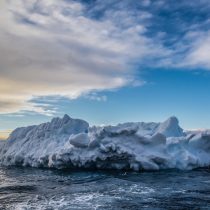
Antarctica is a continent dedicated to peace and science and defined as an environmental reserve, in which more than 40 countries develop scientific activities. However, due to the particular geographical and climatic conditions the form of production of electrical and thermal energy has been based mainly on fossil fuels.
The activity that Chile carries out in this continent is developed through the operation of bases with scientific and logistical capabilities located along the Antarctic Peninsula.
In this context, the Chilean Antarctic Institute (INACH), the Renewable Energy Program of the German Society for International Cooperation (GIZ) and the Antarctic Foundation 21, began to work on the evaluation of energy alternatives so that the Chilean bases in this continent are provided with sustainable fuels, without CO2 emissions, like green hydrogen.
This alliance, formalized through a collaboration agreement, will seek the development of a project that allows the transformation of the energy matrix, in principle, of the Antarctic base “Professor Julio Escudero”, evaluating the use of technologies that use green hydrogen or its derivatives.
Dr. Marcelo Leppe, director of INACH, explains that the protection of the Antarctic environment is a central concern for his institution, being one of the lines of research of the National Antarctic Science Program the “Human footprints in Antarctica”.
“This scientific concern is in line with the renovation of three INACH bases, whose design has as a priority to be friendly to the environment including the way in which we will generate energy for its operation, that is why our interest in exploring alternatives such as the use of green hydrogen,” says Leppe.
Meanwhile, Rainer Schröer, director of the GIZ Energy Program, explains that “our commitment is to support Chile’s energy transition, so we see in this initiative a very positive impact that will benefit this unique continent, which we must protect and preserve, and that will serve as a reference for other nations to migrate to zero emission systems.”
For his part, Jaime Vásquez, president of the Antarctic 21 Foundation, affirms that “it is part of our mission, to promote the care and protection of the Antarctic ecosystem. We are confident that the potential for green hydrogen production in the Magallanes region and the Chilean Antarctic offers concrete opportunities to promote the transformation and energy transition of Antarctic bases.”
The next steps of this initiative are the technical evaluation of different technological and logistical alternatives to find the optimal solution, as well as to join other partners in this task that will benefit a unique place in the world.





